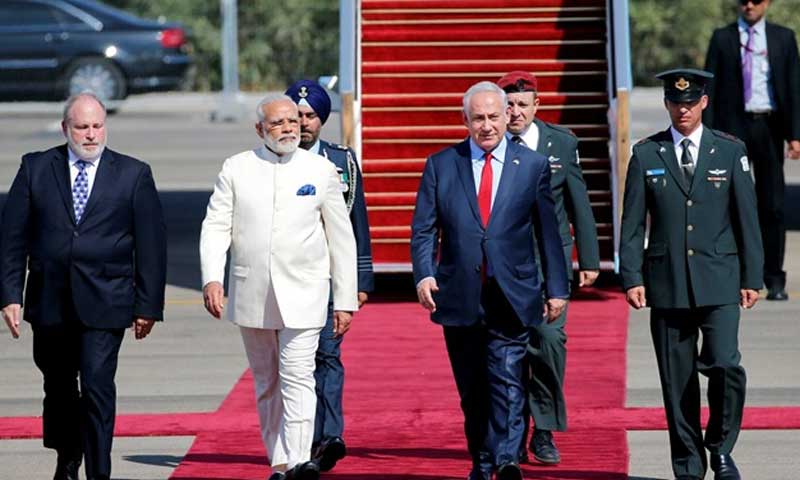- Web Desk
- Feb 26, 2026
Pakistan’s ticking time bomb
The fate of former Bangladesh Prime Minister Sheikh Hasina should remind rulers everywhere that public sentiments matter.
General discontent amidst growing economic distress in Pakistan may also be reaching dangerous levels. The heavy tax burden on the already underpaid salaried class has intensified anger against the government and employers. Assuming the middle classes will remain docile is unrealistic; the students-led movement and its outcome in Bangladesh underscored this once again.
Experts cautioned Prime Minister Shehbaz Sharif’s government to cut wasteful public spending and reduce the tax burden on salaried classes. They also advised private employers to avoid exploiting staff to increase profits.
“In a digitised world, it is impossible to fool everyone all the time. Only the naive would dismiss the possibility of a trigger energizing the middle classes to start a disruptive cycle”, an analyst noted.
The majority of Pakistan’s workforce, one of the 10 largest in the world, serves in the private sector.
This includes teachers, clerks, doctors, engineers, workers in farms and factories, marketers, writers, helpers, receptionists, secretaries, accountants, journalists, bankers, researchers, etc. who fall in the middle of the social scale.
Except for those working for multinationals and a few other firms, most local companies in Pakistan are not good paymasters. With weak regulatory oversight, these companies often ignore the minimal protections to service persons offered by the legal structure.
“Many workers feel trapped and miserable due to tight job market and low incomes”, noted a researcher who was barred by his employer from speaking publicly.
The situation in the public sector is complex. Compared to the private sector, the government in Pakistan treats its lower-ranking employees better with higher salaries, job security and pension coverage.
However, from the middle cadre upwards, the gap between public sector take-home pay and market salaries begins to widen. Top civil servants earn only a fraction of the compensation packages offered to their corporate counterparts.
A study by the Pakistan Institute of Development Economics (PIDE) found the impression of lower-than-market salaries for senior civil servants to be misplaced. The study titled ‘Cash poor, perk rich: civil service compensation’, produced by PIDE in 2021 shows that the actual value of what bureaucrats receive in the form of perks and privileges far exceeds their nominal salaries, which are more like pocket money, as the government often provides housing, house help, transport, healthcare and travel cover free of charge or at very low rates.
“The World Bank’s World Bureaucracy Indicators estimate that the public sector salaries in Pakistan are 53 per cent higher than private-sector wages”, the PIDE report states.
In the informal sector, which employs the largest number of people, the situation is even more chaotic and hostile towards employees.
The perception of unfairly low salaries in Pakistan is not the imagination of some disgruntled employees. Numbeo, a Serbia-based technology company, produced a well-cited global index ranking nations based on average salaries. It ranked Pakistan 94th out of 96 countries assessed, placing it below all neighbouring and peer countries, just above Egypt and Cuba.
Regarding taxes, Pakistan Business Council (PBC), a corporate sector platform, found that taxes on salaried classes in Pakistan are three times higher than those in India.
“It’s time for both employers and Prime Minister Shahbaz Sharif’s government to move beyond rhetoric, ensure timely and fair salaries for employees and reduce the tax burden on working families in a country with already high wealth disparity”, advised a public policy consultant with a background in auditing.
A consultant highlighted the growing discontent but saw slim chances of religious parties gaining political traction by voicing popular demands.
“As employees’ salaries diminish while the wealth of businessmen multiplies many folds, higher taxes on struggling families with unaddressed wasteful government spending, the frustration is high as people receive their first post-budget salary in August”, he remarked.
“The tainted history of Jamaat-e-Islami (JI) may hinder its ability to gain the significant public support it seeks, despite addressing issues that resonate with public sentiments such as inflation and power rates in their sit-ins.
The party’s past includes its role in promoting militant extremism and its alignment with dictators such as General Zia in the 1980s. Nevertheless, there remains a real risk of a public outburst against the elite and the government”, he added in response to a query about the scope of JI’s protest.
Read more: Bangladesh students expect interim govt to be finalised on Wednesday
Finance Minister Muhammad Aurangzeb stated some time back that the government intends to provide relief to the salaried class but can only do so when feasible. Members of the government’s economic team were approached for comments, but their response was not received within the deadline.
Rashid Amjad, former VC PIDE, noted, “The debate on falling real wages is relevant but there is no study on recent wage trends in different sectors in Pakistan due to a lack of reliable data. My observation is that mid-career incomes vary. Banks, MNCs and large companies generally pay better, while mid-sized firms show significant diversity in pay packages”.






